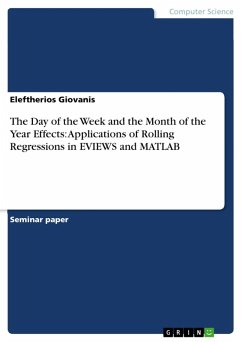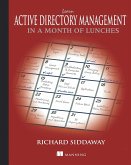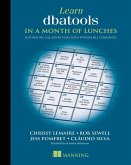Seminar paper from the year 2008 in the subject Computer Science - Commercial Information Technology, grade: 90.0%, , language: English, abstract: In this paper we examine the calendar anomalies in the stock market index of Athens. Specifically we examine the day of the week and the month of the year effects, where we expect negative or lower returns on Monday and the highest average returns on Friday for the day of the week effect and the higher average returns in January, concerning the January effect. For the period we examine we found insignificant returns on Monday, but significant positive and higher average returns on Friday. Also our results are consistent with the literature for the month of the year effect, where we find the highest average returns in January. Furthermore we estimate with ordinary least squares (OLS) and symmetric and asymmetric Generalized Autoregressive Conditional Heteroskedasticity (GARCH) rolling regressions and we conclude that the week day returns are not constant through the time period we examine but are changed. Specifically, while in the first half-period of the rolling regression there are negative returns on Mondays so we observe the day of the week effecting, in the last half-period of the rolling regression Friday presents the highest returns, but the lowest returns are reported on Tuesday and not on Monday, indicating a change shift in the pattern of the day of the week effect. Full programming routines of rolling regressions in EVIEWS and MATLAB software are described.
Dieser Download kann aus rechtlichen Gründen nur mit Rechnungsadresse in A, B, BG, CY, CZ, D, DK, EW, E, FIN, F, GR, HR, H, IRL, I, LT, L, LR, M, NL, PL, P, R, S, SLO, SK ausgeliefert werden.









